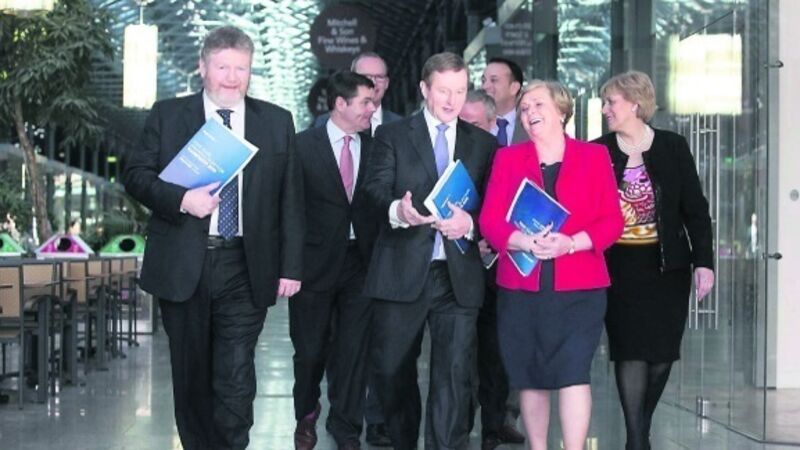Fine Gael trying to win voters’ hearts with Valentine's Day manifesto

Mood music set, the attempt to convince voters to give the rocky relationship between Fine Gael-Labour another chance and to ignore the rival suitors whispering sweet nothings in their ears was clear in every move Mr Hayes, Taoiseach Enda Kenny, and the party’s ministers made over the following hour.
However, Fine Gael’s problem is the public knows that just because someone buys you a box of chocolates at that special time of year and promises to never repeat the past mistakes, it doesn’t always mean its true.
















